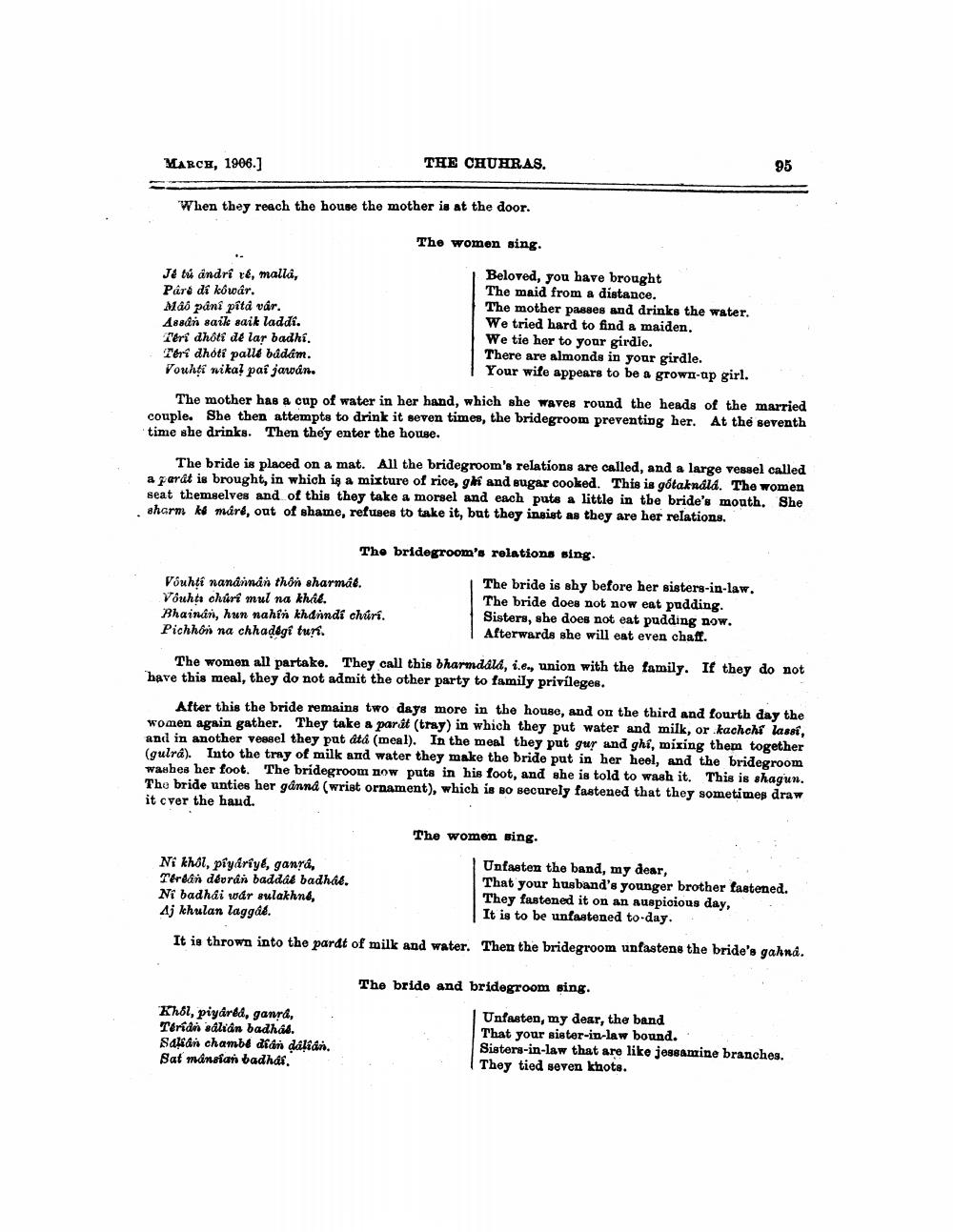________________
MARCH, 1906.]
When they reach the house the mother is at the door.
The women sing.
Jé tú andri vé, malla,
Pârê dî kówár.
Mão pânî pîtá vár.
Assan saik saik laddí. Teri dhoti dé lar badhi. Teri dhoti pallé bâdâm. Vouhti nikal paí jawân.
THE CHUHRAS.
Vouhti nanấm mận thôn sharmat. Vôuhi chúri mul na khâé. Bhainan, hun nahin khanndí chúrí. Pichhon na chhadegi turi.
Beloved, you have brought The maid from a distance.
The mother passes and drinks the water. We tried hard to find a maiden.
The mother has a cup of water in her hand, which she waves round the heads of the married couple. She then attempts to drink it seven times, the bridegroom preventing her. At the seventh time she drinks. Then they enter the house.
Ni khôl, pîyarîye, ganṛá, Téréán dévrán baddát badháé.
We tie her to your girdie.
There are almonds in your girdle.
Your wife appears to be a grown-up girl.
The bride is placed on a mat. All the bridegroom's relations are called, and a large vessel called a parat is brought, in which is a mixture of rice, ghi and sugar cooked. This is gótaknálá. The women seat themselves and of this they take a morsel and each puts a little in the bride's mouth. She sharm ke maré, out of shame, refuses to take it, but they insist as they are her relations.
Khôl, piyâréd, ganṛa, Térian salian badhas. Salian chambé díán dâlîán. Bat mânsian badhaî
The bridegroom's relations sing.
The bride is shy before her sisters-in-law. The bride does not now eat pudding. Sisters, she does not eat pudding now. Afterwards she will eat even chaff.
The women all partake. They call this bharmdálá, i.e., union with the family. If they do not have this meal, they do not admit the other party to family privileges.
95
After this the bride remains two days more in the house, and on the third and fourth day the women again gather. They take a parât (tray) in which they put water and milk, or kachchi lassi, and in another vessel they put atá (meal). In the meal they put guy and ghi, mixing them together (gulra). Into the tray of milk and water they make the bride put in her heel, and the bridegroom washes her foot. The bridegroom now puts in his foot, and she is told to wash it. This is shagun. The bride unties her gânná (wrist ornament), which is so securely fastened that they sometimes draw it over the haud.
The women sing.
Unfasten the band, my dear,
That your husband's younger brother fastened. They fastened it on an auspicious day, It is to be unfastened to-day.
Ni badhai war sulakhné,
Aj khulan laggáé.
It is thrown into the pardt of milk and water. Then the bridegroom unfastens the bride's gahna.
The bride and bridegroom sing.
Unfasten, my dear, the band That your sister-in-law bound. Sisters-in-law that are like jessamine branches. They tied seven knots.




